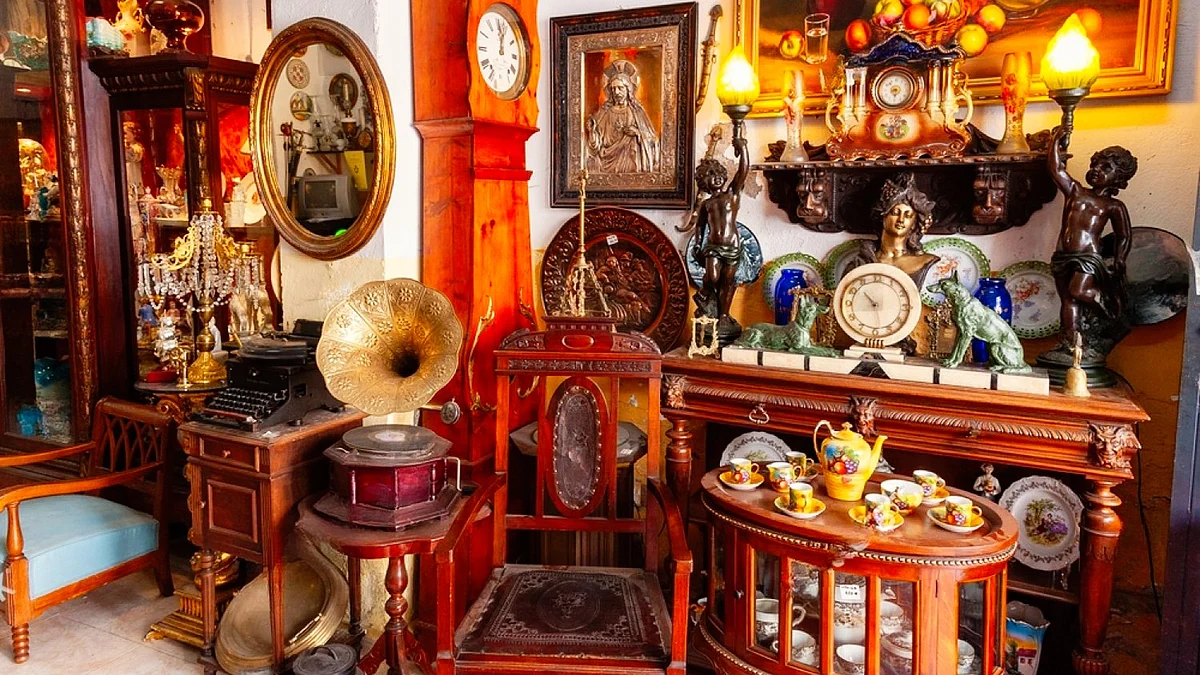Art and Culture
When only love remains
Sentiments of the past are weaknesses that detract from our algorithm-based, market-driven vision of a material Valhalla, feels Avay Shukla

I have just returned from my hometown, Kanpur, after severing the last remaining physical link with my late parents, with the tangible legacies of my dad and mom. My mother passed away in 1994, my dad joined her in 2017. He left behind a lovely flat in a multi-storey development, in which he spent the last years of his life, lonely most of the time, but content and at peace in his otherwise downsized world.
This flat contained the possessions he and my mom, and we (as children), had accumulated over the years, and not one of them was less than 50 years old! These included British-era crockery, a Garrard music player with vinyl records, hundreds of books (mostly mine), furniture from Calcutta and Assam, an assortment of walking sticks.
He had hoarded them lovingly, getting them cleaned and polished regularly, for would his children not inherit them some day? They were precious to him, not just because he had laboured to acquire them over a lifetime, but because they would go to his children after him.
That was never going to happen, of course. The flat was being sold, and we all had enough bric-à-brac of our own, accumulated over our own lifetimes, for our own children! Where was the space to take over my dad's stuff in our metro flats in Mumbai and Noida, where each square foot of space cost Rs 100,000 and 10,000, respectively?
So we gave everything away — the records whose music had once suffused the flat with lilting tunes, the books which had made holidays in Kanpur so pleasant and relaxed, the table at which I had prepared for the civil services exams, the dining table on which my mom used to serve delicious atta ka halwa and gobhi ki subzi which were, and still are, my favourite fare, the harmonium on which my late younger sister learned her music.
Published: undefined
All big slices of our past, all indelibly associated with my mom and dad and our childhood. All now gone. I have retained only a few books, one of papa's walking sticks, his battered briefcase, and a set of crystal Johnnie Walker glasses, which I had bought for Rs 15 from the Jama Masjid Sunday market in 1971 and gifted him for his birthday. They will have to suffice as long as I retain my memory of him.
The compulsions of 'modern' life have no time for the sentiments of the past, these are weaknesses that detract from our algorithm-based, market-driven vision of a material Valhalla.
And that, precisely, is the point of this blog: there is a lesson in my experience, for all of us, all those adrift in the 70-plus boat, most of us in sight of the harbour, or reef, as fate would have it.
As parents, we spend too much time, resources and emotional capital — and deny ourselves — in collecting things to leave behind for our children. It's a waste of parental love, a mortgaging of present needs for an envisioned but uncertain future.
For nothing we leave behind will endure — the house will be sold (if not fought over), the money in the bank will be divided ruthlessly by some chartered accountant or lawyer, and spent on trips to Bali or Biarritz, the clothes will go to charity, everything else will be given away. Nothing will remain but memories, and it is on those that we twilight dwellers should concentrate.. I am reminded of these haunting lines from an anonymous poet:
If I take nothing with me/ May I leave behind something beautiful/ A memory, a kindness, a warmth in the hearts of those I've met/ So that, even when my road ends, love remains.
Published: undefined
Post script: I make it a point never to end any piece on a sombre note, lest the reader fling himself off his 22nd floor balcony in despair; and so I must confess that I did take one other object from my dad's flat — the album of photographs of my wedding with Neerja. (That was in 1977, I think, but I can't be sure since my long-term memory is no longer what it used to be).
There were no digital albums in those primordial days, no smart phones; only 'still' photos which had to be pasted in bulky albums. I've appropriated my wedding album, not just for sentimental reasons, but as an abundant precaution to prove my marriage with Neerja.
In these days of 'certificate raj', there is no saying when proof will be demanded that I am not living in sin with her. Hotels and OYO have already started demanding this, and the time is not far off when banks, landlords and RWAs shall follow suit. 'Marriage vigilantism' will be the latest addition to cow and citizenship vigilantism. Didn't someone say that eternal vigilantism is the price of freedom? Better to be prepared, no?
But I'm taking a big risk bringing this album home and reminding Neerja about our wedding. She has had many second thoughts about those nuptials over the last 48 years, about the wisdom of having plighted her troth to me in an LSR moment of weakness. How will she react to my bringing home documented proof of what she sometimes considers the 'biggest mistake of her life'? Maybe I'll hide the album under the dog's bed. As they say in the Pakistan Punjab — 'Better to be Saif than Suri'.
Avay Shukla is a retired IAS officer and author of Holy Cows and Loose Cannons — the Duffer Zone Chronicles and other works. He blogs at avayshukla.blogspot.com
More of his writing can be read here
Published: undefined
Follow us on: Facebook, Twitter, Google News, Instagram
Join our official telegram channel (@nationalherald) and stay updated with the latest headlines
Published: undefined